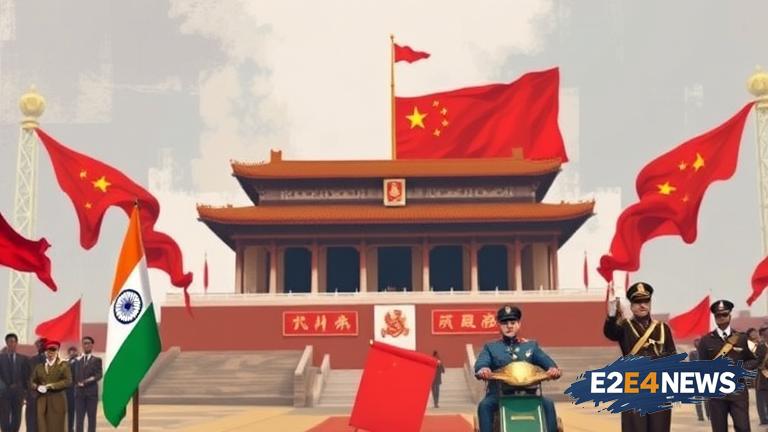The upcoming World War II victory parade in China has sparked intense speculation about whether Indian Prime Minister Narendra Modi will attend the event. However, despite the chatter, it is unlikely that Modi will participate in the parade. One of the primary reasons for this is the strained relationship between India and China, which has been exacerbated by recent border disputes and trade tensions. Additionally, India has traditionally been cautious in its dealings with China, and attending the parade could be seen as a sign of weakness. Furthermore, Modi’s decision to skip the parade may also be influenced by domestic political considerations, as attending the event could be perceived as a betrayal of India’s national interests. The parade, which is scheduled to take place on September 3, is being seen as a major propaganda event for the Chinese government, and India may not want to be seen as endorsing China’s military ambitions. Another reason for Modi’s likely absence is the fact that India has its own commemorations planned to mark the 70th anniversary of the end of World War II. India’s decision to skip the parade may also be seen as a snub to China, which has been trying to increase its influence in the region. The relationship between India and China has been complex and often tense, with both countries competing for influence in the region. In recent years, there have been several border disputes and skirmishes between the two nations, which has led to a deterioration in relations. The parade, which will feature a massive display of Chinese military might, is being seen as a show of strength by the Chinese government. However, India may not want to be seen as acknowledging China’s military superiority. Modi’s decision to skip the parade may also be influenced by the fact that India has its own military modernization plans, which are aimed at countering the growing military presence of China in the region. The Indian government has been investing heavily in its military, with a focus on modernizing its armed forces and increasing its defense capabilities. In addition to the military considerations, there are also economic factors at play. India and China have a significant trade relationship, but there are also concerns about China’s growing economic influence in the region. The Indian government may not want to be seen as endorsing China’s economic ambitions, which could be perceived as a threat to India’s own economic interests. The decision to skip the parade may also be seen as a reflection of India’s growing ties with other countries in the region, such as Japan and the United States. India has been seeking to strengthen its relationships with these countries, which could be seen as a counterbalance to China’s growing influence. Overall, the decision by Modi to skip the parade is likely to be seen as a significant diplomatic move, which reflects the complex and often tense relationship between India and China. The parade, which will feature a massive display of Chinese military might, is being seen as a major propaganda event for the Chinese government. However, India may not want to be seen as endorsing China’s military ambitions, and the decision to skip the parade may be seen as a reflection of India’s own national interests. The relationship between India and China is likely to remain complex and often tense, with both countries competing for influence in the region. The decision by Modi to skip the parade is likely to be seen as a significant diplomatic move, which reflects the strained relationship between the two nations. In conclusion, the decision by Modi to skip the parade is likely to be seen as a significant diplomatic move, which reflects the complex and often tense relationship between India and China. The parade, which will feature a massive display of Chinese military might, is being seen as a major propaganda event for the Chinese government, but India may not want to be seen as endorsing China’s military ambitions.





